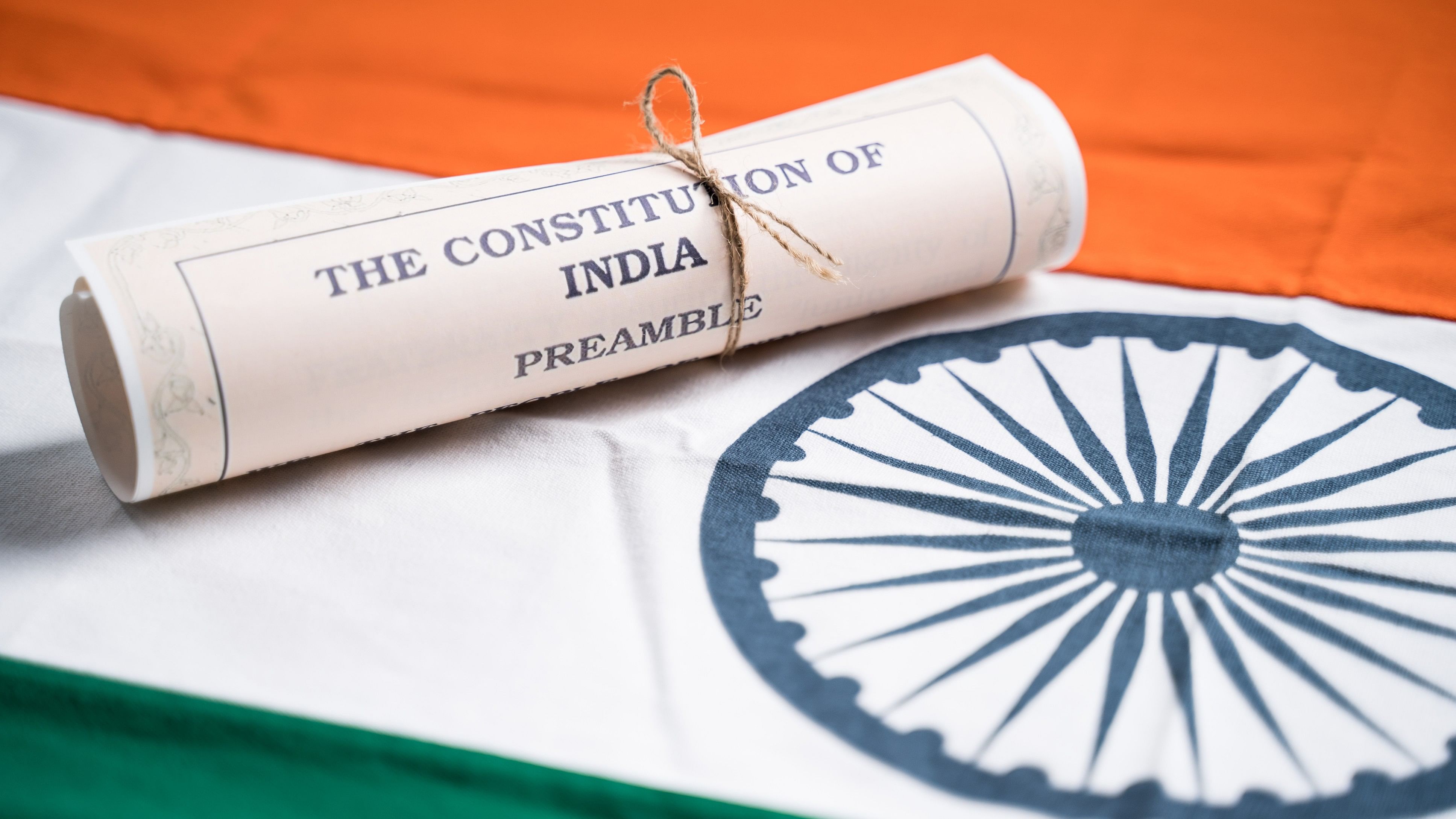
Representative image of preamble with the national flag.
Credit: iStock Photo
Elections are the foundation stones of a free and democratic nation. Without free and fair elections at regular intervals, the democratic nature of a nation may come into question. It is this centrality of elections that mandates an independent and constitutional body to regulate them. These bodies are often referred to as fourth-branch institutions, with specific responsibilities to protect the constitutional and democratic framework of a country. In India, this role is played by the Election Commission of India, established under Article 324 of the Constitution.
This commission, which was a single-member body for a significant period, now consists of three members headed by the Chief Election Commissioner.
Appointments to the commission have been controversial time and again, as the appointing authority in the absence of a law is the President acting on the advice of the Prime Minister. This naturally leads to claims of bias or influence in the appointment process. The process received the requisite overhaul earlier this year when a five-judge constitution bench of the Supreme Court in Anoop Baranwal v Union of India directed that the appointment ought to be made through a three-member committee comprising the Prime Minister, Leader of Opposition, and the Chief Justice of India until a law is enacted by Parliament.
In the Monsoon Session, the government introduced the Chief Election Commissioner and Other Election Commissioner (Appointment, Conditions of Service and Term of Office) Bill, 2023. The bill seeks to alter the composition of the selection committee. The process under the bill introduces a two-step process. First, shortlisting of five persons by the Cabinet Secretary and two other members (not below the rank of Secretary to the Government of India), and second, selection by the Selection Committee comprising the Prime Minister, Leader of Opposition, and Cabinet Minister nominated by the Prime Minister. It is pertinent to note that Section 7(2) of the Bill provides that a vacancy or defect in the constitution of the selection committee would not render the appointments invalid.
The proposed constitution of the committee effectively restores the status quo prior to the judgement of the SC in Anoop Baranwal. It effectively grants the prime minister the authority and sole discretion to decide upon the appointment by making the third member an appointee of the prime minister. The possibility of independent decision-making by such a member will remain bleak. Furthermore, any tinkering with the committee will be saved by sub-section 2. The decision of the SC was based on an interpretation of the constitution in line with the intention of the framers, making it congruent with the spirit of the constitution. The framers intended to ensure that constitutional bodies like the EC remained uninfluenced by the executive. The sole discretion of appointment with the executive was a cause of concern in the Constituent Assembly, as voiced by members like Professor Shibban Lal Saxena and Hriday Nath Kunzru. It was expected of the future parliament to enact laws for a fair appointment procedure, which may further the independence of the commission.
The SC also relied on the reports and recommendations of multiple committees, like the Tarkunde Committee, the Dinesh Goswami Committee, and the National Commission to Review the Working of the Constitution. Most of the reports on electoral reform suggested changes to the appointment process by including both the prime minister and leader of the opposition in the committee. The third member of the committee may be any competent independent person without influence either from the executive or the opposition. While the composition suggested by the SC was meant to operate until the Parliament enacted a law, the inclusion of a member nominated by the prime minister violates the very premise of the judgement, i.e., the removal of executive fiat from the process of appointment.
The SC is the final arbiter with respect to the interpretation of the Constitution, and the basis of its ruling ought not be overlooked while enacting laws. Such enactments will fall foul of the constitutional values as interpreted by the court based on substantive consideration of the issue along with the intent of the framers and historical developments like recommendations on reforms to the appointment process.
While it is a positive sign that such a change in the appointment process is being codified, this must also conform with the spirit of the constitution. Enactment of a law while rendering the premise of the judgement redundant will lay the foundation stones for tumultuous constitutional litigation.
(The writer is a graduate from National Law University, Jodhpur)